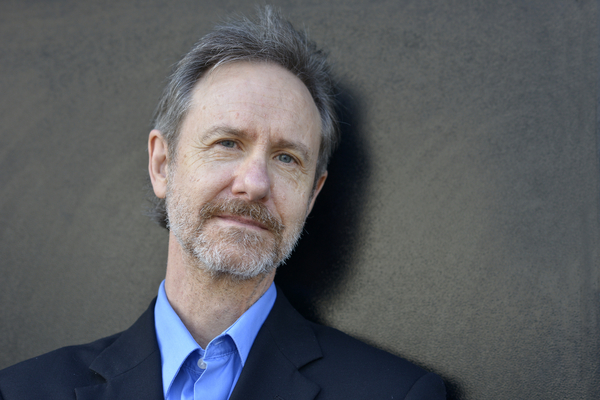Well, dear reader, this week’s issue marks the end of Xpress’ celebration of Poetry Month. And how fitting to conclude our run with a poem that touches on the ultimate ending — death!
Writer, poet and New York Times bestselling author Ron Rash shares with us his poem, “Good Friday, 1995, Driving Westward,” which first appeared in his 2000 poetry collection, Among the Believers.
Many thanks to Rash, along with this month’s other three contributors — Mildred Barya, Wayne Caldwell and Jessica Jacobs — for sharing their works and thoughts on poetry with Xpress.
Good Friday, 1995, Driving Westward
This day I feel I live among strangers.
The old blood ties beckon so I drive west
to Buncombe County, a weedy graveyard
where my rare last name crumbles on stone.All were hardshell Baptists, farmers
who believed the soul is another seed
that endures when flesh and blood are shed,
that all things planted rise toward the sun.I dream them shaking dirt off strange new forms.
Gathered for the last harvest, they hold hands,
take their first dazed steps toward heaven.
Q&A with Ron Rash
Xpress: I know from a previous talk with you that a single image often inspires some of your work. Was that the case here? If so, what was the particular image? If not, how did the poem come about?
Rash: Yes, my paternal grandparents are buried in a church cemetery in the Alexander community of Buncombe County. “Rash” is not a common name, but there is a long row of stones with Rash chiseled on them, and that was the image the poem came from.
Faith comes up in many of your works. Can you speak to the inspiration and how it has influenced your writing over the years?
I grew up in a family and extended family in which religion — Christian, but at times also pagan — was very important. But to their credit, they never hectored me or tried to frighten me into belief. Instead, I gained a sense that life is mysterious. I agree with the Welsh poet Bobi Jones that “it is the boundless mystery that comforts being.”
As both a poet and a fiction writer, do you notice a difference in your approach depending on the form?
Absolutely. Like FM/AM. Poetry for me is about sound-play within the line, prose within the sentence and paragraph. Also, the poetry I love most has an aural energy or word arrangement that also offers a kind of pre-verbal communication, as in [Gerard Manley] Hopkins, or more recently poems such as Seamus Heaney’s “Postscript.”
And so that is the aim for you when approaching your poetry?
When I write a poem, among other aspects, I want it to be a net for catching sounds.
Lastly, as I’ve asked all poets featured in this month’s series, is there a new collection of poems written by a local author that you’re particularly fond of? If so, what makes the collection stick out to you?
Joyce Brown’s Hard-Packed Clay is a collection set in the North Carolina mountains. Brown is in her mid-70s, and she is the rare poet, as with Yeats, who has produced her/his best work at this stage in a career. The poems are elegiac, but within them is, as she says in the concluding poem, “the heart’s resurgent beat of hope.”




Before you comment
The comments section is here to provide a platform for civil dialogue on the issues we face together as a local community. Xpress is committed to offering this platform for all voices, but when the tone of the discussion gets nasty or strays off topic, we believe many people choose not to participate. Xpress editors are determined to moderate comments to ensure a constructive interchange is maintained. All comments judged not to be in keeping with the spirit of civil discourse will be removed and repeat violators will be banned. See here for our terms of service. Thank you for being part of this effort to promote respectful discussion.